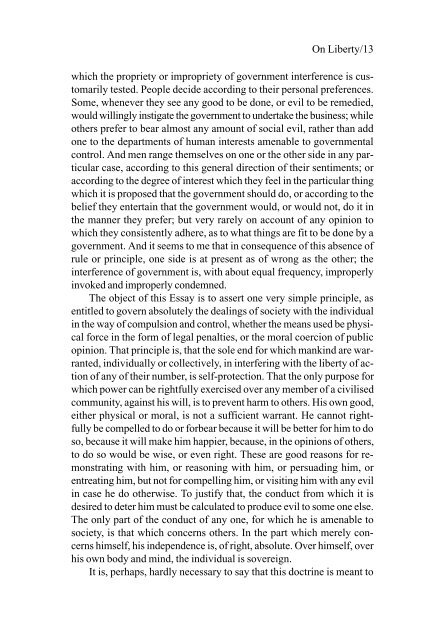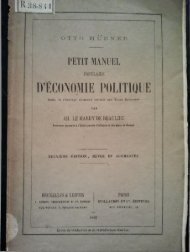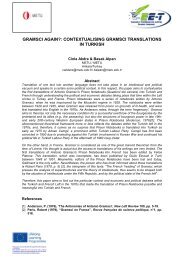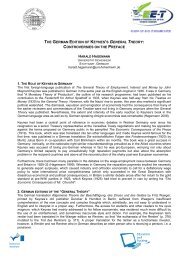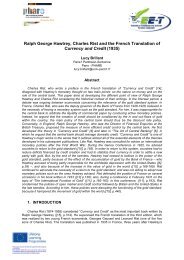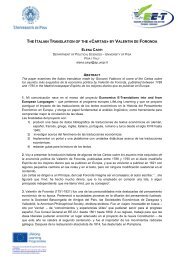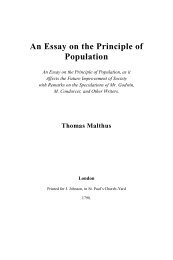On Liberty John Stuart Mill Batoche Books
On Liberty John Stuart Mill Batoche Books
On Liberty John Stuart Mill Batoche Books
You also want an ePaper? Increase the reach of your titles
YUMPU automatically turns print PDFs into web optimized ePapers that Google loves.
<strong>On</strong> <strong>Liberty</strong>/13which the propriety or impropriety of government interference is customarilytested. People decide according to their personal preferences.Some, whenever they see any good to be done, or evil to be remedied,would willingly instigate the government to undertake the business; whileothers prefer to bear almost any amount of social evil, rather than addone to the departments of human interests amenable to governmentalcontrol. And men range themselves on one or the other side in any particularcase, according to this general direction of their sentiments; oraccording to the degree of interest which they feel in the particular thingwhich it is proposed that the government should do, or according to thebelief they entertain that the government would, or would not, do it inthe manner they prefer; but very rarely on account of any opinion towhich they consistently adhere, as to what things are fit to be done by agovernment. And it seems to me that in consequence of this absence ofrule or principle, one side is at present as of wrong as the other; theinterference of government is, with about equal frequency, improperlyinvoked and improperly condemned.The object of this Essay is to assert one very simple principle, asentitled to govern absolutely the dealings of society with the individualin the way of compulsion and control, whether the means used be physicalforce in the form of legal penalties, or the moral coercion of publicopinion. That principle is, that the sole end for which mankind are warranted,individually or collectively, in interfering with the liberty of actionof any of their number, is self-protection. That the only purpose forwhich power can be rightfully exercised over any member of a civilisedcommunity, against his will, is to prevent harm to others. His own good,either physical or moral, is not a sufficient warrant. He cannot rightfullybe compelled to do or forbear because it will be better for him to doso, because it will make him happier, because, in the opinions of others,to do so would be wise, or even right. These are good reasons for remonstratingwith him, or reasoning with him, or persuading him, orentreating him, but not for compelling him, or visiting him with any evilin case he do otherwise. To justify that, the conduct from which it isdesired to deter him must be calculated to produce evil to some one else.The only part of the conduct of any one, for which he is amenable tosociety, is that which concerns others. In the part which merely concernshimself, his independence is, of right, absolute. Over himself, overhis own body and mind, the individual is sovereign.It is, perhaps, hardly necessary to say that this doctrine is meant to


